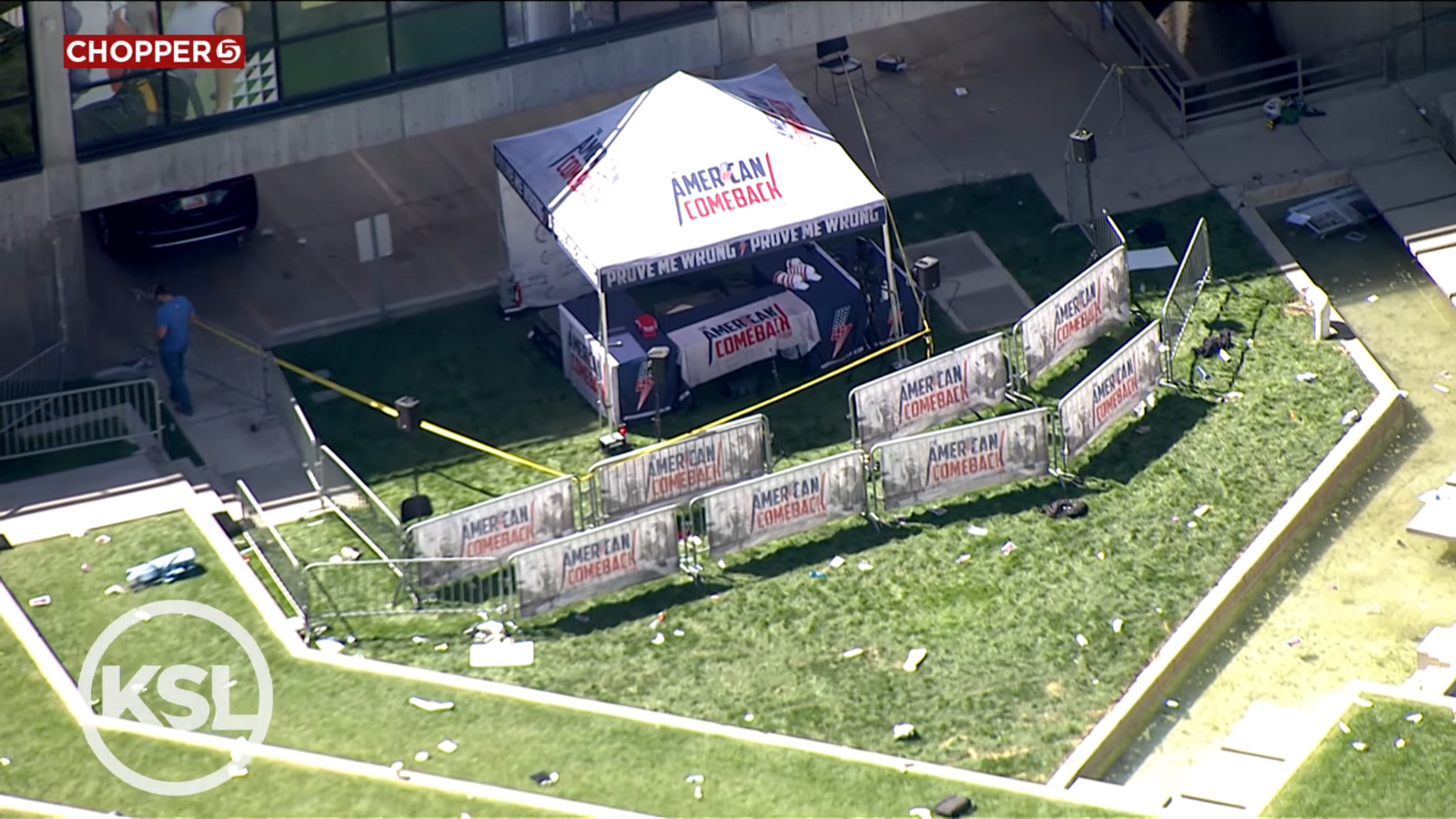
On Sept. 10, 2025, political influencer Charlie Kirk was assassinated at a Turning Point USA event held at Utah Valley University’s campus. The suspected shooter, Tyler Robinson, faces preliminary charges of aggravated murder.
Colleges nationwide are reevaluating their safety plans in the wake of this attack on a university-facilitated guest speaker. Director of Security Services Dave Ferber explained, “Puget Sound Security Services regularly communicates with other colleges and universities to review best practices related to campus safety,” and confirmed they are doing so following Kirk’s murder. He was unable to disclose specific processes related to event security on campus, but said “we do not anticipate any changes in the frequency of on-campus events at Puget Sound.”
In the days following Kirk’s assassination, black students and HBCUs across the nation received threats of violence, prompting at least seven of those universities to go into lockdown. Jordan Fry (‘27) said she was alarmed to hear anti-trans rhetoric emerge after the shooting, as well. “I was really scared for a bit when there was the claim the shooter was trans, not even necessarily because I believed it, but because just if that theory had stuck around, that might have been enough to be really dangerous to myself and my community,” she said. University Chaplain Dave Wright said that members of our campus community have been feeling fear, grief, and frustration in the wake of the attack. “I have been approached by multiple students struggling with the impact of Mr. Kirk’s murder and their concerns about its repercussions for civil discourse and disagreement,” he said.
Kirk’s assassination prompted some voices on the political right to blame rhetoric criticizing Kirk for his murder. President Donald Trump, in a video shared on Truth Social, said, “For years, those on the radical left have compared wonderful Americans like Charlie to Nazis, and the world’s worst murderers and criminals. This kind of rhetoric is directly responsible for the terrorism that we’re seeing in our country today. And it must stop right now.”
“Political violence has been a part of American history for a very long time,” said Professor of Politics and Government Dr. Robin Jacobson. She says that norm erosion in the current political moment is a driver of violence. “We’ve seen a breakdown in norms about political contestation, so people no longer understand those that disagree with them politically as being part of the same community and political project.” She also described renewed concerns about how violence is manifesting in American politics. “I think there’s an increased fear and distrust that you can feel on the local level, just walking around the street.”
Politics and Government Professor Dr. Seth Weinberger, who studies political violence, noted that it is often understood differently depending on the ideology that motivates it. For example, he said, violence originating from the right often stems from the frustration of white men who feel their dominant social position is in jeopardy. In contrast, left-originating violence often comes in reaction to policy shifts that are perceived as authoritarian. Additionally, he said, “people on both sides of the political aisle tend to greatly exaggerate the willingness of people on the other side of the aisle to support violence.”
President Trump’s administration has argued that increased political violence justifies the use of military force in cities run by Democrat-led governments. A National Security Presidential Memorandum (NSPM-7) released on Sept. 25 reads, “Heinous assassinations and other acts of political violence in the United States have dramatically increased in recent years.” The memo cites the assassination of Charlie Kirk (2025), healthcare CEO Brian Thompson (2024), the attempted assassination of Republican Supreme Court Justice Brett Kavanaugh (2022) and the two attempted assassinations on himself (2024). It also claims “Riots in Los Angeles and Portland reflect a more than 1,000 percent increase in attacks on U.S. Immigration and Customs Enforcement officers since Jan. 21, 2025.” The memo does not mention the assassination of Minnesota state representative Melissa Hortman alongside her husband and dog (2025), the attack on Representative Nancy Pelosi’s husband, Paul Pelosi (2022) or the shooting at Evergreen High School that took place on the same day as Kirk’s killing.
The administration has aimed to characterize some of these instances of violence as interrelated and part of an ideological campaign. “Common threads animating this violent conduct include anti-Americanism, anti-capitalism and anti-Christianity; support for the overthrow of the United States Government; extremism on migration, race and gender; and hostility towards those who hold traditional American views on family, religion and morality,” NSPM-7 reads. Weinberger said that it will be difficult for the administration to classify and prosecute any of those political views. “Under U.S. law, there is no process by which a domestic organization can be designated as a ‘domestic terrorist organization,’” he said. “When you have the president and the law enforcement establishment only focusing on violence from the left, that is really, really dangerous,” he added.
In contrast to President Trump’s characterizations, numerous studies find that incidents of fatal violence are more often committed by right-leaning, as opposed to left-leaning, actors. This remained true from 1990 to 2020, according to a study published in the Criminology, Criminal Justice, Law & Society journal. “I think the rhetoric we’re seeing from, say, President Trump, or the attorney general, or the director of the FBI, seems to be completely taking the current moment of violence out of its historical context,” Weinberger added.
